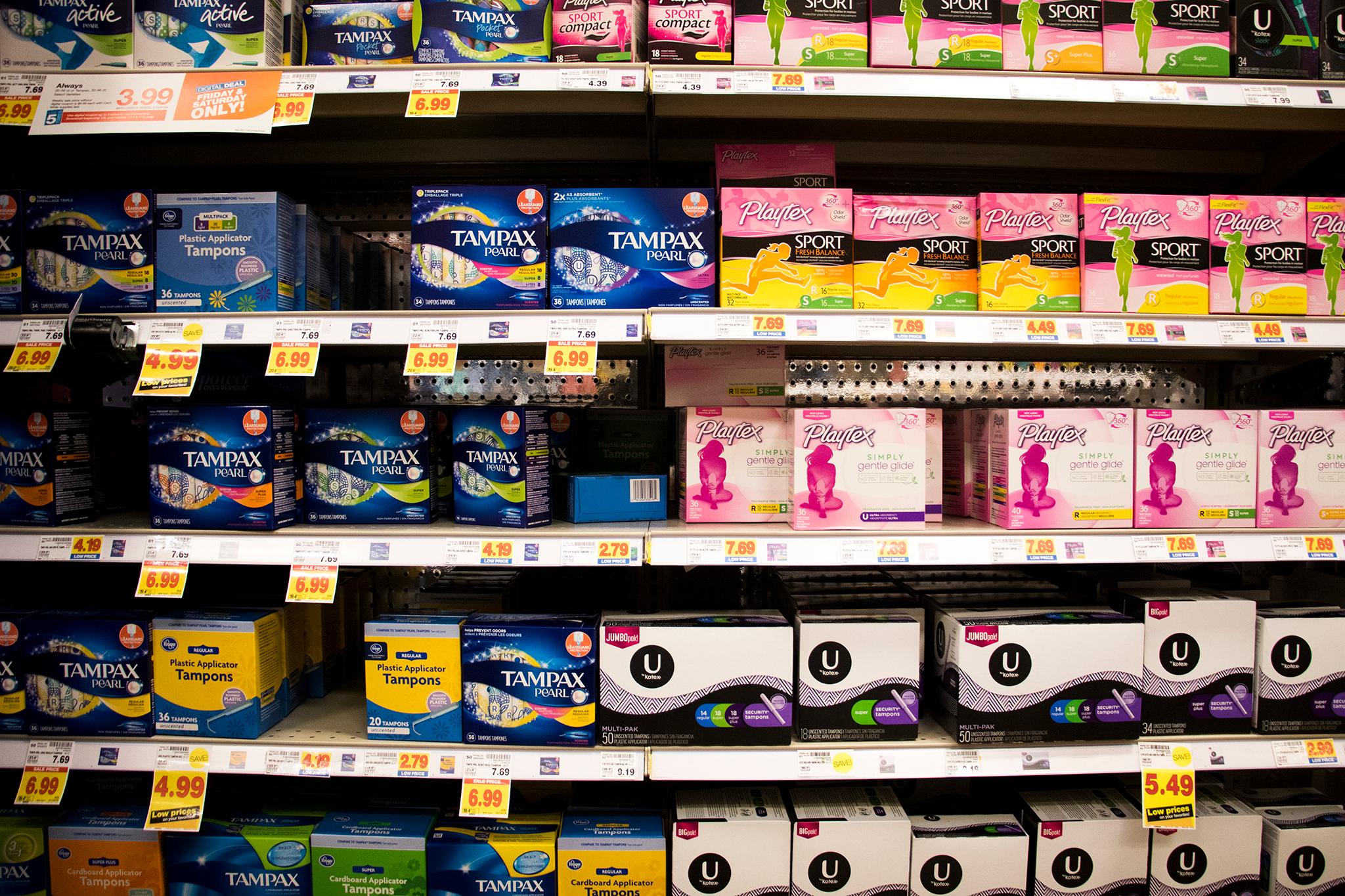Update: On March 26, the Denver City Council unanimously exempted feminine hygiene products from the city sales tax.
The city and state charge sales tax on feminine hygiene products, so the Denver City Council advanced a bill Tuesday that would scale back what amounts to a fee on menstruation.
We knew elected officials were kicking around the idea, and city legislators unanimously voted to move the measure forward during a Finance and Governance Committee meeting. The bill would exempt tampons, menstrual pads, sanitary napkins, pantiliners, sponges and cups from city taxation. (The state tax would remain.)
City Council President Jolon Clark sponsored the measure after female staffers alerted him to the tax on health products that are a requirement for half of the population.
The tax also disproportionately affects women experiencing homelessness and financial hardship. According to research presented at a New York roundtable on menstrual health, low-income girls were missing school more frequently because they lacked the health products and feared bleeding through their clothes in front of their peers, said Emily Lapel, a legislative analyst with the city.
"And while that is an issue that you mostly think about in developing countries, it is actually still an issue in the United States," Lapel said.
Tampons and pads are taxed at 4.31 percent -- the city's sales tax rate. Denver would lose about $450,000 annually if the bill passes, according to a fiscal analysis by the state treasury. The average woman would save about $200 over her lifetime, according to a city council presentation. (That presentation also contained the rallying cry, "No Taxation on Menstruation.")
Geoff Davis works for a nonprofit that assembles and delivers "period kits" to women who can't afford the health products. They have 90 days worth of stuff inside, said Davis, who favors the repeal.
"The reason for this is because, really, these are expensive items and women are having to choose between food or tampons, and we all feel that that's just not something that any human being should have to choose," Davis said.
The bill will go before the entire city council for a vote later this month.













